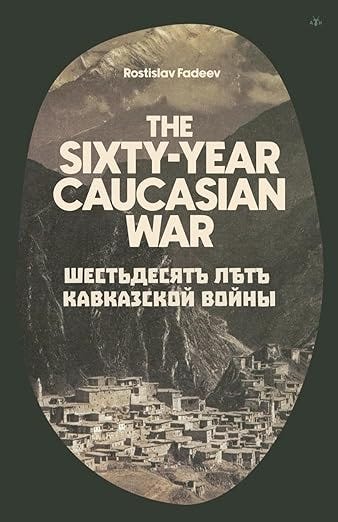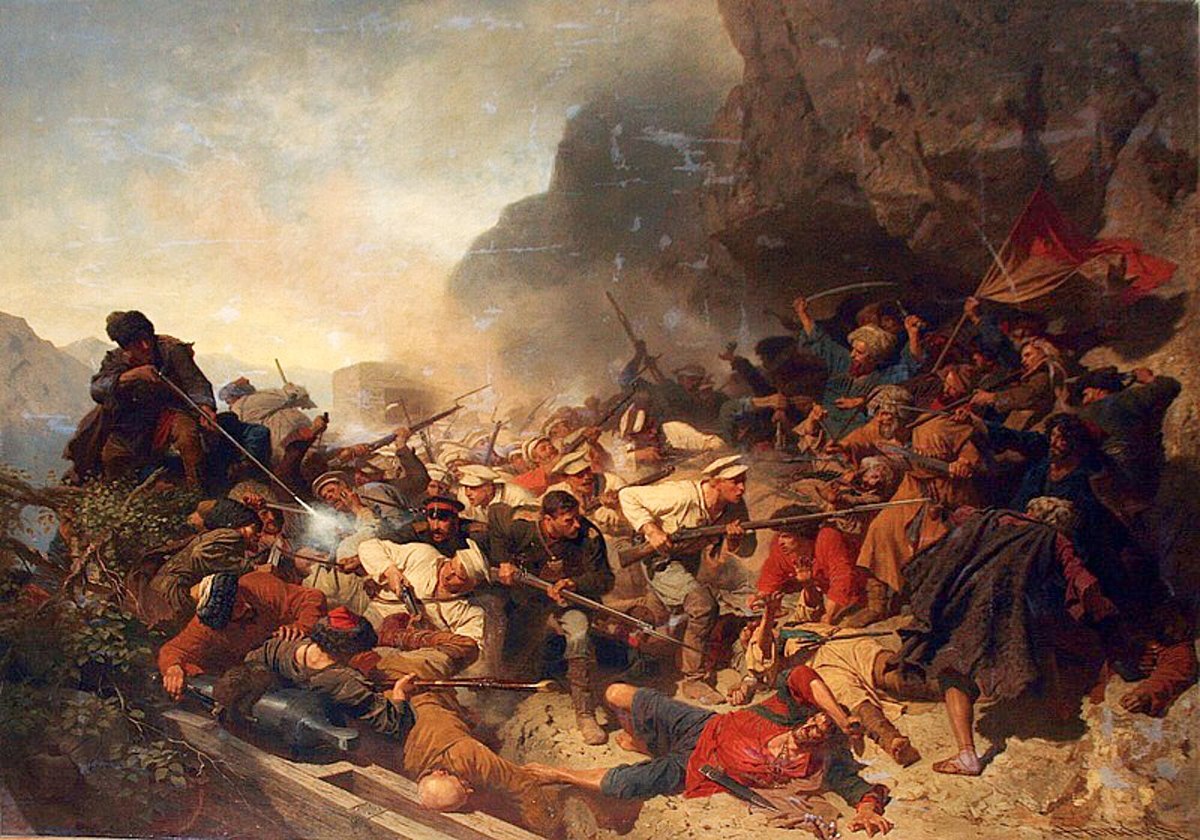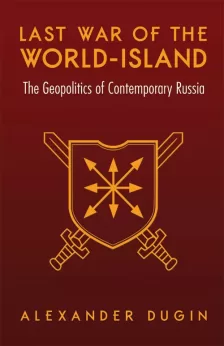Prior to 1979, most in the West did not think a great deal about Islam. When they did, they thought of Ataturk, the collapse of the Ottomans, the Shah, or later on the works of Edward Said. By their silence many regarded Islam as an unthreatening phenomenon, its ravages resigned to history. Lawrence of Arabia saw fit to advocate for the Bedouins, and Muhammad Ali converted to Sunniism. But these were asides; the world remained a European one.
Now we think about Islam all the time. In part this is because we have been exceedingly foolish about immigration, for reasons of utopian naivety, eternal economic growth, electoral disenfranchisement, or soft genocide, depending on how you look at it. Few expected the next great rejection of the modern project to come from outside the West. Westerners expected internal challengers: the isms of the twentieth century, whose advocates had their own ideas about the direction modernity should take, and often took national forms. Liberalism, and the Arsenal of Democracy, won those arguments, and we presumed would win later arguments, too — and often did. Nobody was worried about masked mujahedeen with AK-47s until they took over the US embassy in Iran. But Islam has an implacability to it, even if internationally Islamic states enjoy minnow status.
After twenty years in the Middle East, the United States has thrown down its arms. For this failure there are many historical antecedents. To tame Hispania, the Romans spent well over a century. The Han Chinese demographically replaced their noisome subject peoples en masse, and still do. It is typical of muddy-headed liberalism that we build schools and drop bombs on the same day, try empire lite on a timeline that conforms to presidential terms, and still waste trillions of dollars. Throwing down arms is a privilege when your war is not an existential one; at least, not for you.
We fight our wars in faraway places, like the European empires toward the end of the nineteenth century, at the behest of vague causes and historical alliances. Nobody who has any brains really views the states of the Middle East, however rogue, as genuine existential threats. These conflicts share more in common with the Matabele meeting the Maxim gun than the broader conflicts military establishments prefer. Only a catastrophic failure of will can snatch defeat from victory in these cases. Unfortunately, will is hard to muster in contemporary democracies.
The United States has two oceans and only two land neighbours; the United Kingdom a broad channel; Australia and New Zealand the Pacific; Europe has NATO and American guarantees even though they suffer more malleable boundaries. None of these advantages are shared by Russia. If Russia worries about borders, she has good reason to do so.
Russia, halfway between Western Europe and the Asiatic, has contended with Islam for a long time. Islam, as Samuel Huntington quipped in the 1990s, has always had bloody borders, and the Russians faced these bloody borders long after the Moors were expelled from Spain and the Turks driven from Vienna. The book The Sixty-Year Caucasian War, written by Rostilav Fadeyev in 1860 and recently translated into English, provides an account of part of this long conflict, fought between the ‘mountaineers’ — the people of the Caucuses — and the armies of the tsar. Fadeyev himself served in those armies of the tsar, and his account is considered the official history of the conflict from 1800 to 1860.
The book is good. It is especially good on Islam, seen through clear-sighted nineteenth-century eyes. Fadeyev recognises Islam as the deadening, monadic force that justifies ferocity against the infidel while hollowing out the man, a “wild beast” always “gnawing at its cage”:
Islam penetrated into all their social pores and completely displaced nationality, as lime mortar displaces little by little all the substance of an ancient shell, taking its form; it took possession of the whole man and fossilized him, leaving no room for either social or personal development which does not arise from the Quran.
Even more than the society, the personality of man is sedated in Islam. In this respect Islam may well be called a rational religion; it explains the world and gives man a purpose in a rational, natural way, quite close to the universal tradition, intelligible to every mind and therefore perfectly satisfactory; but at the same time, it is presented without the slightest moral ideal that could sanctify the soul.
He is quick to note the combination of Islam with the warlike character of the Caucasians, an admixture of European heredities with a religious movement he identified as ‘Muridism,’ a Sufi-inspired movement that combined a desire for national sovereignty with Jihadi sentiment. In our own time, it was often the Chechens who proved the most dangerous advocates of Jihad. With the confidence of the nineteenth-century European, Fadeyev notes the inability of Islam to penetrate to the marrow of a human being; instead, it forces a rough shallowing out of the human psyche, which casts it in sharp relief against the Western dialectical tradition:
When Europeans observed the African tribes who had embraced Islam, they were struck by the fundamental impotence of that religion on moral character; nothing distinguished the Negro Muslims from the faithless Negroes, except the turbans on the heads of significant individuals. It cannot be otherwise. Islam, depending on whether the circumstances are more or less favorable to it, either eradicates the nationality altogether, leaving in its place one numerical collection of units, or remains an external ceremony without any relation to life …
… The mountaineer was like a child brought up with bad examples, who adopted them unaccountably but still retained all the freshness of his dormant soul; he never fell to the degree of the Guinean Negro, retaining over him the immeasurable advantages of his pure, richly endowed Japhetic lineage. The unspoiled nature of these people is evident in the fervor and devotion which Muridism — the first general idea that penetrated their thought — kindled within them. All the energy that the mountaineers had developed over centuries of combat, they now devoted to this new religion. Until that point, they had been warriors for the sake of war — brigands or mercenary soldiers. The only armies in the East which were capable of opposing the Europeans — after the waning of the first explosion of Islam — were always composed of Caucasians; pure Asiatic armies could never withstand the European onslaught except by disproportionate numerical superiority.
The civilisational danger presented by Islam has always been an external one, the threat of the conqueror. Intellectually and spiritually it is a poor substitute for the richness of the West — at least, the historical West. The mountaineers, courtesy of their isolation, were deprived of better examples, despite being nominal possessions of the tsar. For a long while, Russia was more concerned with Islam on those bloody borders, in the form of Persia and Turkey. When those international conflicts ceased, attention turned to the stubborn mountain peoples. The second half of the book deals with the military campaign to subjugate those mountaineers, who had been radicalised by Muridism and the teachings of Shamil, the closest 19th-century analogue to Osama bin Laden.
The 1856 appointment of Prince Baryatinsky to lead military operations, after decades of stalemate followed by a period of great losses and few advances, was greeted enthusiastically by Fadeyev. The Prince kept morale among the men high; he introduced new doctrines suitable to mountain fighting; he reorganised the divisions that occupied the stretches of mountain. He brings to mind General McChrystal, who was greeted similarly when he took things over in Afghanistan in 2009. Like McChrystal, Prince Baryatinsky was ensnared by political scandal, which led to his fall from grace and resignation. The difference was he won his war before this happened.
Typical of successful counterinsurgency, Prince Baryatinsky denied the enemy respite and used the advantages of a professional army to interrupt their economic activity and establish strongholds in their territory:
Until then [1856], expeditions were made periodically at certain times of the year, depending on the terrain; then the troops were disbanded to their quarters. This interval gave the mountaineers rest, which was absolutely necessary for them, since their strength consisted of the national militia, which had to be fed by their own labor. Prince Baryatinsky decided to wage war nonstop, allowing the mountaineers neither time nor rest until they were completely subdued. At the same time, he changed the very nature of the occupation of the conquered countries. Instead of towns erected at each new headquarters, the construction of which absorbed all the activity of the nominated troops for a long time, Prince Baryatinsky’s plan was to build only a rampart at newly occupied points, placing troops in barracks and cabins, thus preserving their strength for war.
By 1860, the conflict was over; Shamil had been captured and the Caucuses pacified. Shamil was exiled to central Russia and the recalcitrant tribesmen of the mountains were expelled or massacred. Many ended up in the Ottoman Empire. Others were Russified in the north. Fadeyev, exuding all the civilisational confidence of his time, declared after Shamil’s capture:
Left to themselves, eye to eye with the Sharia, the mountaineers could not stand the Muslim character. In a few days the religious dimension of Muridism would disappear from popular memory; only legend would remain about it as a great struggle of the Caucasian tribes against the Russians.
About this he was wrong; the Muslim character of the mountains, especially in today’s Chechnya, remained strong, and boiled into fresh conflict when Islam as a metapolitical force again emerged in the late twentieth century. In this there are lessons. Scant decades after Fadeyev’s own death, Imperial Russia, the future of which he expresses no doubt, collapsed like a house of cards. Islam would not.
For we postmoderns, the lesson here is not in the implacable nature of Islam, even in its half-modernised form, but the seemingly implacable monolithic façade of international liberalism. The proponents of this system, by every metric diseased, cannot imagine a post-liberal order. They may have to expand their imagination before long.
There are also lessons about Russia, today’s villain for neoconservatives and liberals alike. Russia is poorly understood by the West. Tolstoy, in The Cossacks, portrayed the tension between the different parts of Russia, between the quasi-Westernised cities of the west and north and the wild places on the periphery. The Cossack has always captured the Russian imagination. They served with distinction in the Caucasian War and were the first to oppose the Bolsheviks. The Cossack is in part responsible for the obdurate character we misascribe to Russians generally.
The Russians have had subject peoples, multiple land borders, and a unique historical identity for a very long time. Despite the efforts of both the Decembrists and the Bolsheviks, the peculiarities of the Russian character, stitched by this historical tapestry, have never been completely extirpated. In this they are like the mountain peoples they fought against so long. They always remained Russian first, and the ideational temptations of the post-Cold War order made only brief inroads there. Russia, despite decades of suffocation under the permafrost of Communism and a staggering rate of divorce, emerged a more traditional society than the West, who appear to have forgotten everything about themselves. The Russian elite is keen to keep this memory alive; this is why Putin speaks so often on history, and why no Westerner who cannot think beyond progressive bogeymen has a hope of understanding the conflict in Ukraine. The best they can do is make vague allusions to a certain Austrian painter.
The future belongs to people who know who they are; we abandoned our own wars in the mountains because we do not know who we are, or what we are about. No society, no matter how materially sufficient, can fight a civilisational war if they no longer cleave to a sense of civilisation. No quantity of liberal preoccupations, feminised rationales or individual actualisation can replace the quality of a people rooted in the proximate and the historical. This is true of both the Russian and the mountaineer he strove against.
You can purchase The Sixty-Year Caucasian War here.










